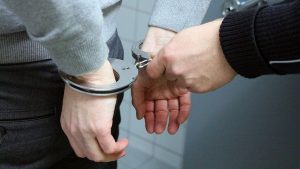 Criminal laws were at the forefront of the last few Maryland legislative sessions as lawmakers tackled highly controversial issues with prior marijuana and narcotics laws. Medical marijuana became state law just a couple years ago and now dispensaries are already selling their products to registered patients. Last year the hot topic was eliminating lengthy mandatory prison sentences for non-violent drug cases and streamlining the procedures for parole and probation violations. Both of these goals were achieved with the passage of the Justice Reinvestment Act, which also lowered the potential maximum punishment for not marijuana drug possession. The threshold for felony theft was also increased from $1,000 to $1,500, and other theft crimes were altered to account for inflation. Compared to the last few years there is little buzz around Annapolis with respect to new criminal legislation, but lawmakers know that nothing peaks the interest of the voting base like crime and will act accordingly when contemplating ideas for potential bills
Criminal laws were at the forefront of the last few Maryland legislative sessions as lawmakers tackled highly controversial issues with prior marijuana and narcotics laws. Medical marijuana became state law just a couple years ago and now dispensaries are already selling their products to registered patients. Last year the hot topic was eliminating lengthy mandatory prison sentences for non-violent drug cases and streamlining the procedures for parole and probation violations. Both of these goals were achieved with the passage of the Justice Reinvestment Act, which also lowered the potential maximum punishment for not marijuana drug possession. The threshold for felony theft was also increased from $1,000 to $1,500, and other theft crimes were altered to account for inflation. Compared to the last few years there is little buzz around Annapolis with respect to new criminal legislation, but lawmakers know that nothing peaks the interest of the voting base like crime and will act accordingly when contemplating ideas for potential bills
Human trafficking is one crime that has stirred up debate among state lawmakers at this early stage of the 2018 legislative session. A Glen Burnie delegate already proposed to change adult human trafficking, which has a broad definition under Maryland law, from a misdemeanor to a felony. Taken literally human trafficking means the buying, selling or trading of human victims that are forced to engage in labor or sexual activity. It is estimated to be a one to two hundred billion dollar industry worldwide. In Maryland this law comes into play to punish any type of activity that furthers the business of prostitution. This includes providing a place for a prostitute to engage sexual activity, inducing or enticing someone to become a prostitute or profiting in any manner from solicitation. A person who is commonly referred to as a pimp is the prime target for this law.
Recently there has been an influx of undercover sting operations targeting human trafficking in the Baltimore metro area. Many of these stings take place in Anne Arundel County at a variety of BWI Airport hotels, but Howard County and Baltimore County police departments also take part in these stings at other locations. Police typically make contact with potential suspects by posting fake adds on the website Backpages. After a potential John responds to one of these fake adds an undercover police officer posing as a prostitute will attempt to agree to offer sex for money in one of the hotel rooms. As soon as an agreement is reached (or sometimes before) the undercover gives the takedown signal and a team from an adjacent room barges in to make the arrest for solicitation. This type of sting does not usually result in information leading to a human trafficking arrest, but the goal is to try to decrease the market for paid sex and thereby reduce the amount of pimps and prostitutes. Human trafficking cases typically begin with the arrest of a prostitute who agrees to give police information about their pimp. It is a complete defense for a person arrested on prostitution charges to assert they were working under duress or pressure from a pimp, and police often use this portion of the law as a selling point for cooperation.
The Blog will continue to follow the progress of any human trafficking bills as they progress through the legislature, but we do believe some provisions will change come October. If you have a question about a human trafficking or solicitation charge contact attorney Benjamin Herbst at 410-207-2598. Benjamin has defended numerous clients in prostitution cases, having won not-guilty verdicts in human trafficking and solicitation jury trials. Contact him at 410-207-2598 for a free consultation anytime.
Resources
Glen Burnie delegate makes case for changing Maryland’s human trafficking law, capitalgazette.com.
 Criminal Defense Lawyer Blog
Criminal Defense Lawyer Blog

